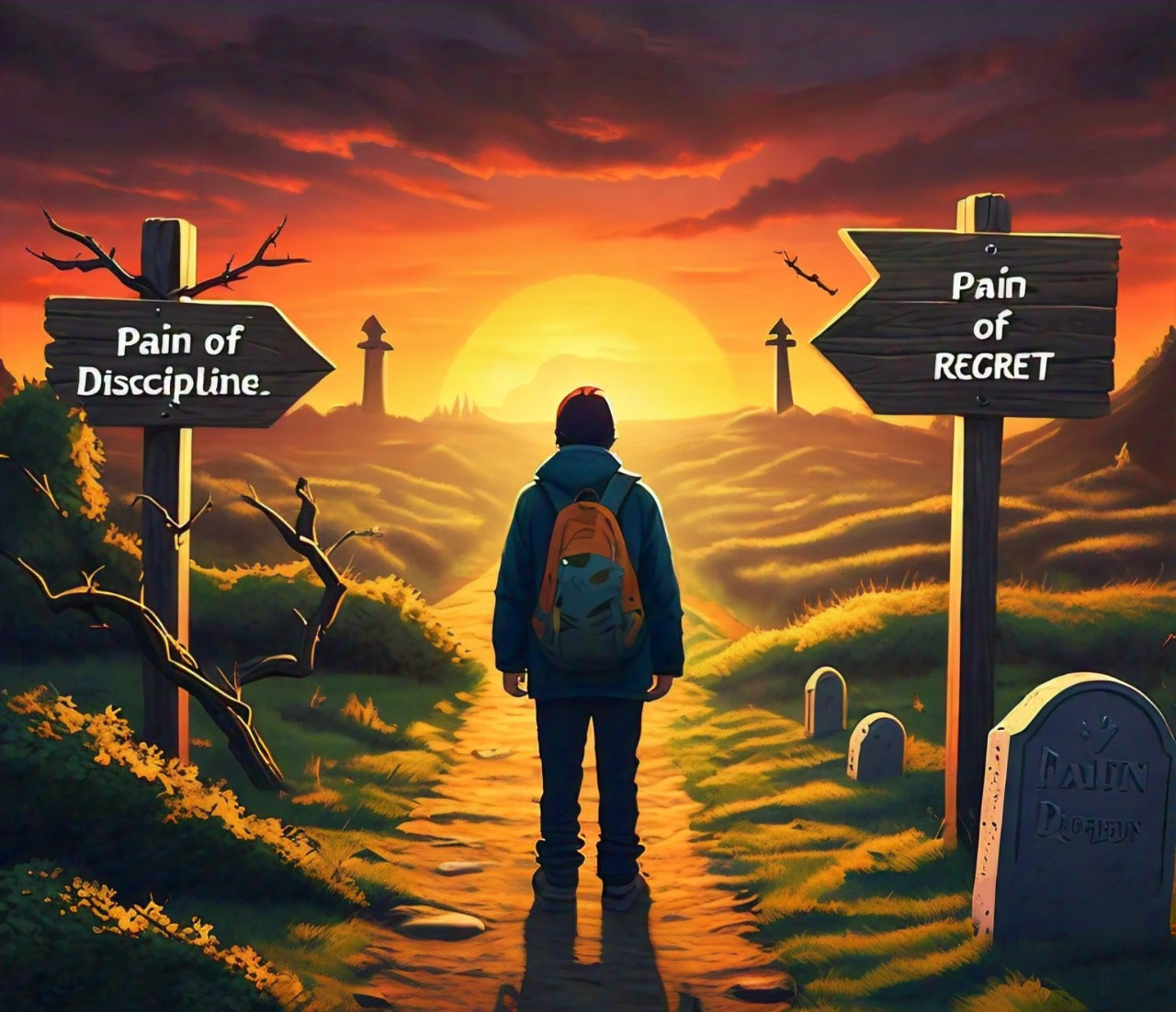In physics, Newton’s First Law of Motion states: An object at rest stays at rest, and an object in motion stays in motion unless acted upon by an external force.
Some of us, if not most of us at some point in our lives, we have heard that that law before even if we are not a fan of science class back in school, but few realize how deeply it applies to self-development.
In life, just like in physics, inertia is real. Whether it is procrastination, to inconsistency, or you just feeling stuck, getting started is often the hardest part, but once you do, something powerful happens: Momentum.
Inertia is not just Laziness; It is Physics
For most of us, we often beat ourselves up for “lacking motivation,” but the truth is, you are not broken, you are just battling inertia.
In physics, inertia is the tendency of an object to remain in its current state, whether still or moving, unless something forces it to change. Your body and brain work similarly; if you have been stagnant, dull or slow, it is not just because you are lazy or unmotivated; you are fighting a natural law.
And this is both the bad news and the good news:
- The bad news: If you stay passive, you will keep staying passive.
- The good news: Once you start, staying in motion becomes easier than stopping.
The breakthrough comes when you stop trying to feel motivated and instead apply an “external force,” a small action that breaks the stillness. You do not need a life overhaul; you just need a nudge, and once you are moving, motion takes over.

The Power of Small Starts: Why the First Push Matters Most
If you have ever tried pushing a heavy object, you know the first shove is the hardest, and after that, it rolls; that is exactly how habit-building and self-development work.
The hardest part is showing up:
- Writing the first sentence.
- Doing the first push-up.
- Reading the first page.
- And sending the first email
Most people wait for inspiration to begin, but Newton teaches us: Do not wait for motion, create it.
Tiny actions create traction, and here is how to harness that in your daily life:
- Lower the bar to entry. Make it laughably easy to start. Want to journal? Start with one sentence. Want to exercise? Commit to 2 minutes.
- Shrink the starting point. Do not plan the entire project. Just begin the first step.
- Focus on initiation, and not completion. Your only goal is to move and once you are moving, finishing often comes naturally.
So start small! Start ugly! Start anyway! Because once you move, staying in motion is effortless compared to starting again from zero.
The Law of Incremental Improvement Practice states that “continuous improvement” is possible, you can achieve extraordinary results by improving your skills bit by bit each day in relation to your goals.
These tasks are repetitive and relatively simple, so they don’t seem to be susceptible to significant change.
It doesn’t always have to be about making big, dramatic changes. Sometimes it’s necessary to address large problems with big projects; however, this is not always true. Incremental improvement is a method of process improvement that focuses your efforts on small solutions that gradually but surely lead to success. The results will last for many years, even though they may not have an immediate impact. The accumulation of small improvements can often be as powerful or more powerful than trying to make huge leaps.
Continue Reading: The Compounding Effect: The Power of Small Incremental Improvements
Motion Maintains Itself: Build Systems That Keep You Going
Newton’s First Law also tells us that once something is in motion, it stays in motion unless acted upon by an external force. That means if you can remove the resistance, you can keep growing without constantly having to force yourself, and this is where systems come in.
Instead of relying on motivation, which in long term can be unreliable, build a system that sustains momentum, and here is how you can do that:
- Design routines that remove decision fatigue. If you work out at the same time every day, there will likely be no debate, just action.
- Environment matters. Structure your surroundings so they reinforce your motion. Keep your journal on your pillow. Put your workout clothes next to your bed.
- Remove friction. Whatever slows you down, eliminate or automate it. Do not fight your system, but let your system fight for you.
- Build streaks. Momentum thrives on consistency, so track your wins, celebrate small progress, and let each action build on the one before it.
Because when growth becomes part of your rhythm, not a random spark, you start compounding progress, and just like in motion, consistency creates velocity.
It’s highly unlikely to succeed if you’re not consistently making good decisions and taking the appropriate actions.
One thing that people who fail have in common is that they do not have consistent behaviour. That means that if you’re looking to succeed, you need to practice consistently, remain focused, and demonstrate more intention in the things you perform. Consistency will help you create awareness, establish trust, and provide your services with efficiency and profit; without it, your company will be more vulnerable to failure.
Continue Reading: Why Consistency is An Important Habit
Read Also: What Is Murphy’s Law? Real-Life Examples and How to Deal With It
Read Also: Wilson’s Law: Why Knowledge First is The Smartest Financial Strategy
Read Also: Faulkland’s Law: The Quiet Strength of Silence, Patience, and Power
Conclusion
Newton did not write a self-help book, but his law may be one of the greatest self-development principles ever: Start moving! Stay moving! Let momentum do the rest!
You do not need massive motivation or a perfect plan; you need a single push in the right direction and then the wisdom to keep that motion alive with smart systems and small wins.
The difference between someone stuck and someone growing is not talent or luck; it is that one took the first step, and the other is still waiting to feel ready.
So stop waiting! The motion you are looking for is waiting inside one small action. Push once and let your future roll forward from there!





